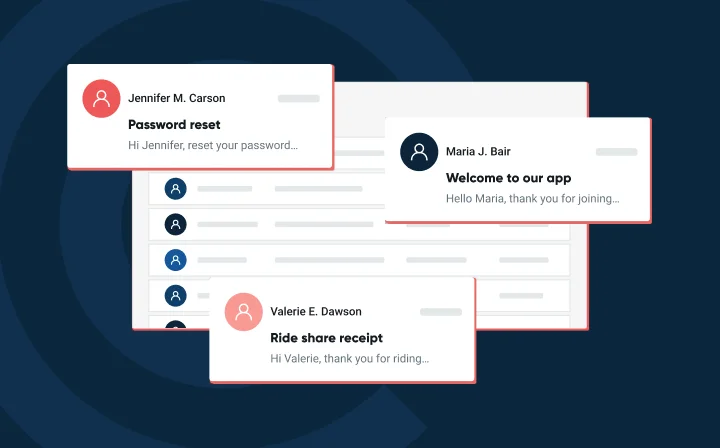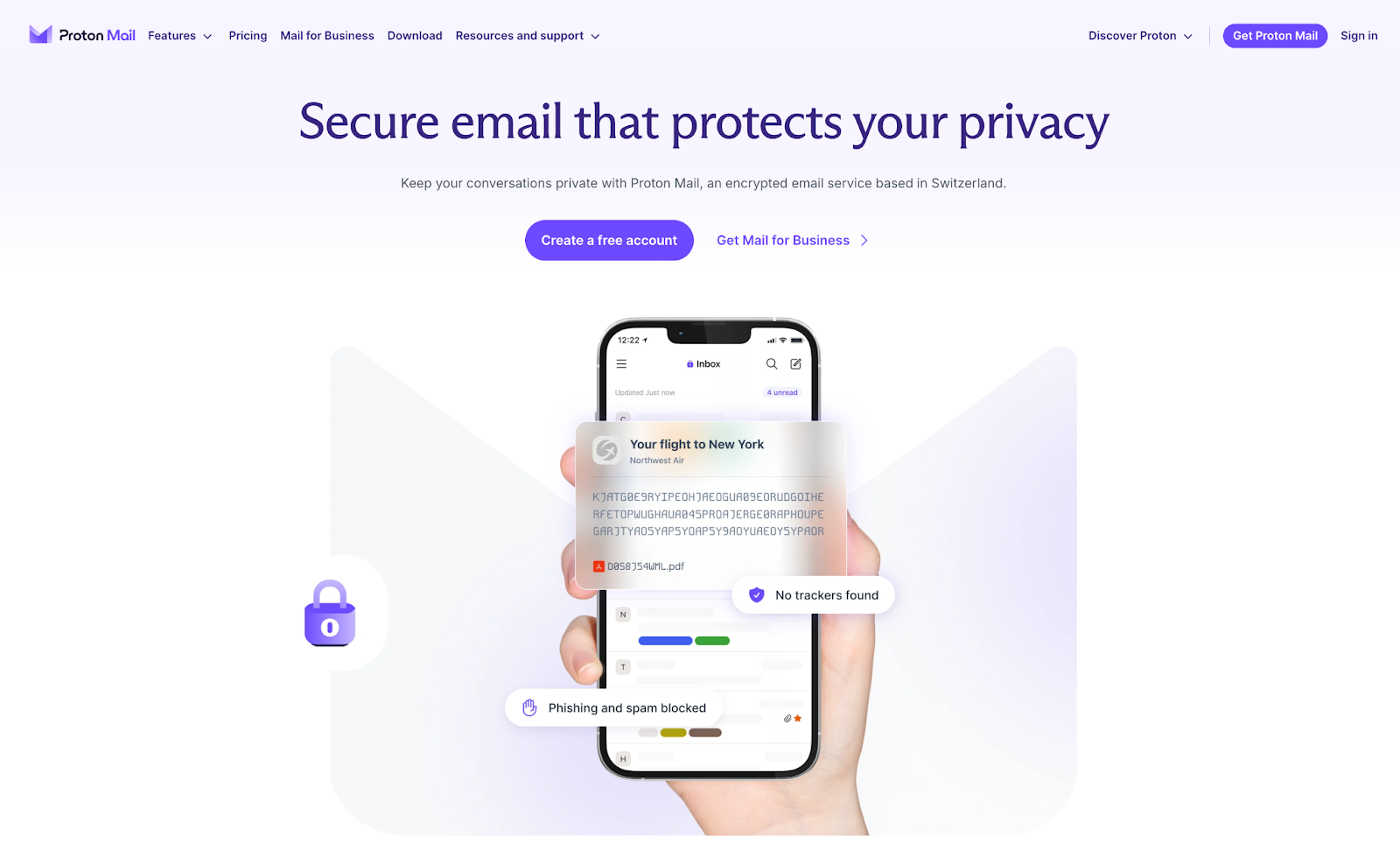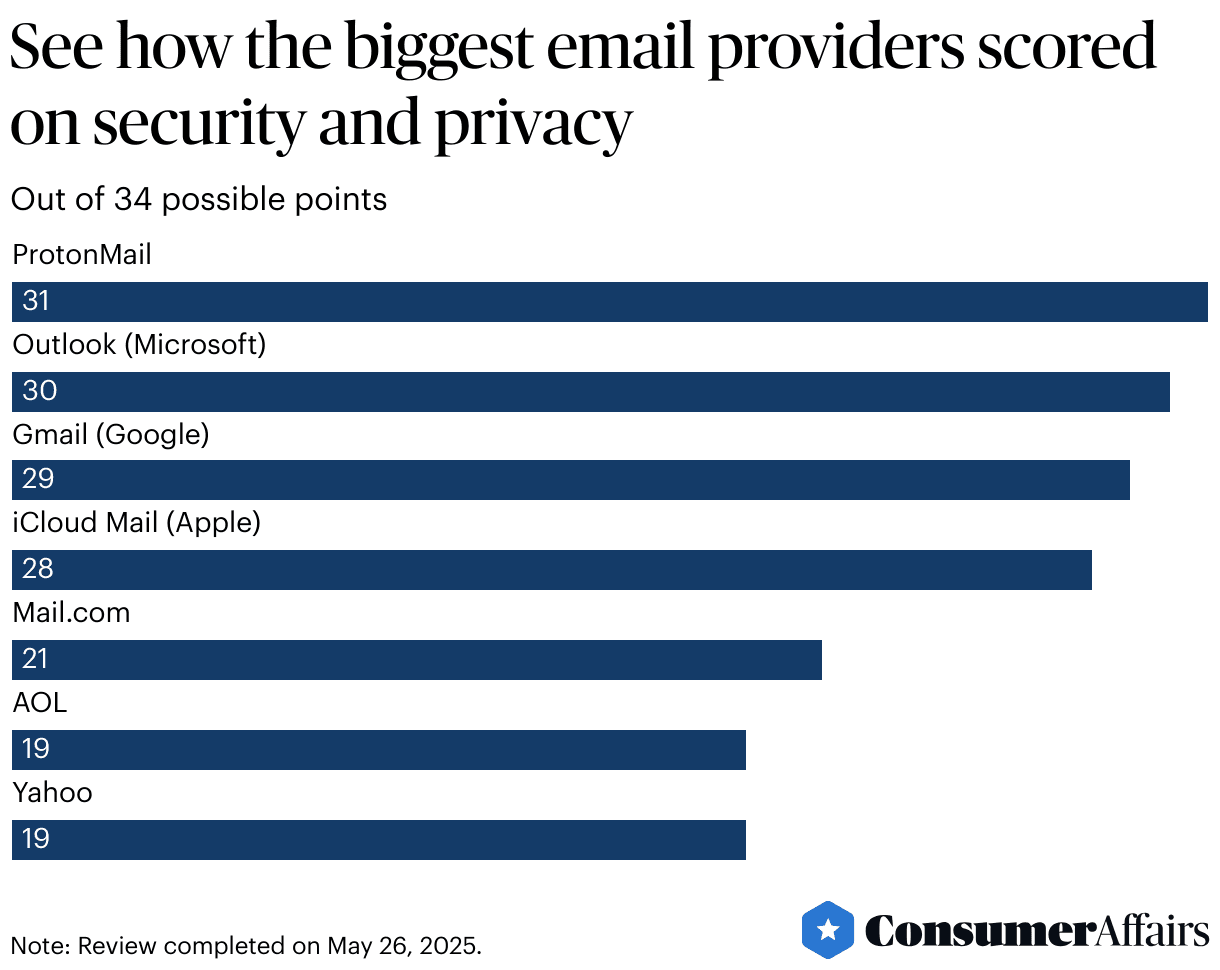Your email is more than just a way to send messages—it’s a gateway to your personal life and sensitive information. But how safe is it?
If you value your privacy and want to keep your emails secure from prying eyes, choosing the right email service is crucial. Imagine having an inbox where your data stays private, where no one else can peek in without your permission.
You’ll discover the best email options designed specifically to protect your privacy. Ready to take control of your digital life? Keep reading to find the email service that fits your need for security and peace of mind.

Credit: www.mailgun.com
Why Email Privacy Matters
Email privacy is important for everyone who uses the internet. It protects your personal information and keeps your messages safe from others. Without privacy, your emails can be read or stolen by strangers. This can lead to serious problems.
Emails often contain sensitive details, like passwords or personal data. Keeping these private helps avoid identity theft and fraud. Privacy also protects your conversations from being shared without your permission.
Risks Of Unsecured Email
Unsecured email can lead to many risks. Hackers may access your inbox and steal important information. This can cause financial loss or damage to your reputation. Some emails carry viruses that can harm your device. Without proper security, your email account can be taken over by others.
Common Threats To Email Privacy
Several threats target email privacy every day. Phishing is a common trick where scammers try to steal your login details. Spam emails may carry harmful links or attachments. Some attackers use spyware to monitor your emails secretly. Public Wi-Fi can expose your emails to hackers easily.
Key Features Of Secure Email Providers
Choosing an email provider that protects your privacy is very important. Secure email services offer special features to keep your messages safe. These features stop others from reading or tracking your emails. Understanding these key features helps you pick the best service for privacy.
End-to-end Encryption
End-to-end encryption keeps your emails private. It scrambles your message before sending. Only the person you send it to can read it. Even the email provider cannot see your email content. This stops hackers and snoopers from spying on your messages.
No-logs Policies
No-logs policies mean the provider does not save your data. They do not keep records of your emails or activity. This protects your privacy because nothing is stored that could be shared. Your information stays safe and private at all times.
Two-factor Authentication
Two-factor authentication adds extra security to your account. It asks for a second code after your password. This code usually comes from your phone. It stops others from accessing your email, even if they have your password. It makes your account much safer.
Open Source Code
Open source code means anyone can see the email service’s software. This helps experts check for security problems. It builds trust because the code is not hidden. Open source services often fix bugs faster and improve security regularly.
Data Jurisdiction
Data jurisdiction means where your data is stored. Different countries have different privacy laws. Choosing a provider in a country with strong privacy rules helps protect your information. It limits government access and keeps your data more secure.
Top Secure Email Providers
Choosing a secure email provider helps keep your messages private. These services protect your emails from hackers and unwanted eyes. They use strong encryption and respect your data privacy. Here are some of the best options to consider.
Protonmail
ProtonMail offers end-to-end encryption for your emails. It is based in Switzerland, known for strong privacy laws. The platform does not track your data or IP address. ProtonMail also provides easy-to-use apps for all devices.
Tutanota
Tutanota encrypts your entire mailbox, not just messages. It uses open-source software for transparency. The service blocks trackers and ads to protect your privacy. Tutanota has a simple design and supports multiple languages.
Mailfence
Mailfence combines secure email with digital signatures. It offers end-to-end encryption and strong authentication. The service stores data in Belgium, which has strict privacy rules. Mailfence also includes calendars and document storage.
Countermail
CounterMail focuses on security with diskless servers. It prevents data leaks by storing nothing on hard drives. The service uses OpenPGP encryption and strong password protection. CounterMail supports anonymous email accounts and USB key login.
Posteo
Posteo is an eco-friendly email service with strong privacy. It uses encryption for emails and contact data. The provider does not require personal information to sign up. Posteo also supports two-factor authentication for extra security.

Credit: canarymail.io
Comparing Security And Privacy Features
Choosing the best email service for privacy means comparing key features. Security and privacy features protect your personal information from hackers and trackers. This section breaks down important factors to consider. Each feature plays a role in keeping your emails safe and private.
Encryption Strength
Encryption turns your messages into code. Strong encryption stops outsiders from reading your emails. Look for services using end-to-end encryption. This means only you and the receiver can read the message. Some providers use older encryption, which may be easier to break.
User Anonymity
User anonymity hides your identity from the email provider and others. Some services allow signing up without personal info. They do not log your IP address or track your activity. This protects you from being identified or tracked online.
Data Storage Practices
How and where your data is stored matters. Some providers store data on secure, encrypted servers. Others keep logs that can reveal your activity. Look for services that delete your data regularly or never store it. Strong data policies reduce risk of data leaks.
Pricing And Plans
Free email services may lack strong privacy features. Paid plans often offer better encryption and anonymity options. Compare prices to find what fits your budget. Some providers offer basic free plans and premium options for more security.
Tips To Enhance Your Email Privacy
Protecting your email privacy is crucial in today’s digital world. Small steps can stop big problems. These tips help keep your email safe from hackers and spies. Follow them to guard your personal information and enjoy a safer email experience.
Using Strong Passwords
Create passwords with a mix of letters, numbers, and symbols. Avoid common words or easy patterns. Change passwords regularly to keep accounts secure. Use a unique password for each email account to prevent risks.
Enabling Two-factor Authentication
Two-factor authentication adds a second layer of protection. It asks for a code after entering your password. This code comes via text or an app. Even if someone steals your password, they cannot access your email without this code.
Avoiding Phishing Attacks
Phishing is when hackers try to steal your info by pretending to be someone else. Do not click links or download attachments from unknown senders. Check email addresses carefully. If a message looks suspicious, delete it right away.
Regularly Updating Software
Keep your email app and device software updated. Updates fix security weaknesses. Running old software makes you vulnerable to attacks. Enable automatic updates to stay protected without any effort.

Credit: www.youtube.com
Conclusion
Choosing the best email for privacy helps protect your personal data. Secure email services keep your information safe from hackers and trackers. Privacy matters more today than ever before. Use strong passwords and enable two-factor authentication for extra security. Remember, your email is your digital identity.
Picking a private email provider gives you peace of mind. Stay safe online by making smart choices. Privacy starts with the right email. Simple steps can make a big difference. Protect your inbox, protect yourself.
